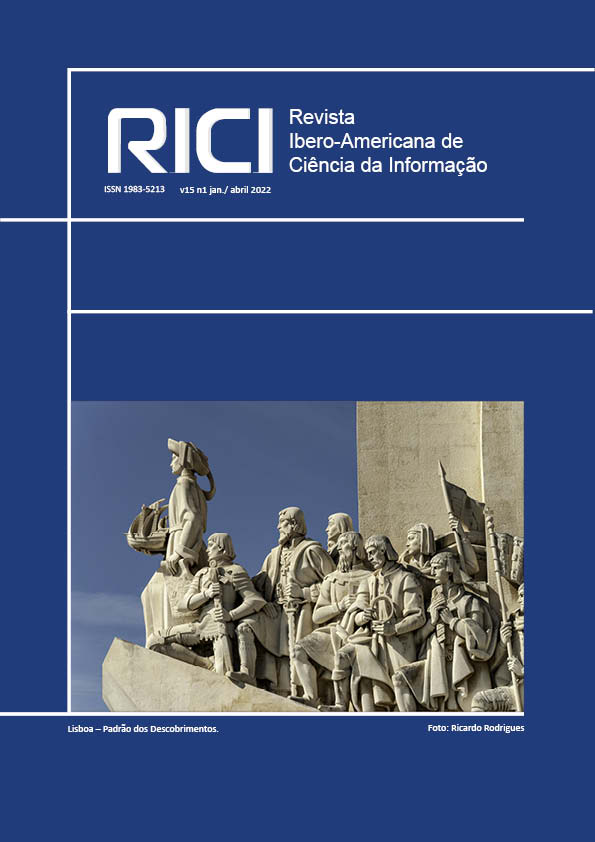The trajectory of the INTERPARES Project: reflections on theories and methodologies developed during the Project
DOI:
https://doi.org/10.26512/rici.v15.n1.2022.42425Keywords:
Archival Science, Digital record, InterPARES Project , Digital preservationAbstract
The purpose of this article was to analyze the theoretical and methodological foundations developed during the International Research on Permanent Authentic Records in Eletronic Systems (INTERPARES started in 1999. As the Project is pointed out in the archival literature as a significant contribution to research on the preservation of digital records, the mapping of its transformations in theoretical approaches and influences remains an underexplored object of study. In this sense, it is worth considering the following starting question: “What are the main theoretical and methodological contributions of the InterPARES Project throughout its trajectory?” through a qualitative research in order to synthesize the trajectory of the project as well as reflect on its theoretical and methodological foundations. Therefore, our investigation was carried out through bibliographic research, the scientific production of interPARES and Brazilian or foreign works that studied the Project. The results suggest that as technological changes occur and, consequently, in the applicability of technologies in recordkeeping and, as the Project accompanies such innovations with its research, the need arises to reflect on emerging technologies commonly applied in decentralized technologies.
Downloads
Downloads
Published
How to Cite
Issue
Section
License
Copyright (c) 2022 Natália Bruno Rabelo, Clarissa Moreira dos Santos Schmidt

This work is licensed under a Creative Commons Attribution 4.0 International License.
Copyright Notice
Authors who publish in this journal agree to the following terms:
- Authors retain copyright and grant the journal right of first publication with the work simultaneously licensed under the Creative Commons Attribution License 4.0, allowing the sharing of work and recognition of the work of authorship and initial publication in this journal.
- Authors are able to take on additional contracts separately, non-exclusive distribution of the version of the paper published in this journal (ex.: distribute to an institutional repository or publish as a book), with an acknowledgment of its initial publication in this journal.
- Authors are permitted and encouraged to distribute their work online (eg.: in institutional repositories or on their website) at any point before or during the editorial process, as it can lead to productive exchanges, as well as increase the impact and citation the published work.
















